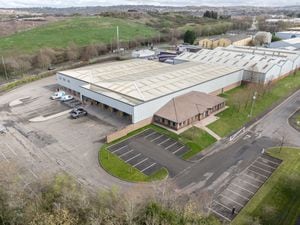West Midlands firms see record rise in new business
West Midlands businesses have seen the sharpest upturn in new orders in the history of NatWest's regional business activity index.

The West Midlands purchasing managers' index registered 65.5 in May, down only fractionally from April's record high of 65.9.
The seasonally-adjusted index measures the month-on-month change in the combined output of the region’s manufacturing and service sectors.
It was second-quickest increase in regional output since data became available in January 1997. Panellists attributed the expansion to the further easing of lockdown measures, the reopening of additional businesses and a surge in demand.
Private sector companies in the West Midlands noted a third consecutive monthly increase in new work intakes. Moreover, the pace of expansion was sharp and climbed to a survey peak. According to panel members, the easing of Covid-19 restrictions and the reopening of many businesses boosted demand for goods and services. The West Midlands was in second place in the regional rankings for new business, behind the North West.
West Midlands companies were at their most upbeat towards the year ahead outlook for output since the series started in July 2012. The retreat of Covid-19, vaccine success and hopes for further relaxations of travel restrictions were among the key factors boosting confidence. Firms foresee a pick-up in consumption and plan to launch new products and services. The overall level of positive sentiment in the region was above the national average.
Not only did employment in the West Midlands increase for the third straight month in May, but the rate of growth was the fastest since data collection started in January 1997. Moreover, job creation was noted in the manufacturing and service sectors. Panel members reported capacity expansion efforts amid the surge in demand and the easing of Covid-19 restrictions. The West Midlands and Yorkshire & Humber shared the top spot for employment growth in May.
Burdens
Private sector companies in the West Midlands noted a further increase in outstanding business volumes in May, taking the current sequence of accumulation to three months. Moreover, the rate of expansion was the second-fastest in the series history, slower only than that seen in April. Panellists linked the rise to material shortages, robust demand conditions and insufficient staff.
West Midlands firms noted a further increase in cost burdens halfway through the second quarter. Companies associated the latest rise with supply shortages, difficulties in international shipping as well as higher transport and staff costs. The overall rate of inflation was steep and quickened to a near 13-year high. Manufacturing companies observed a faster upturn in expenses than their services counterparts. The overall rate of input cost inflation in the West Midlands outpaced the UK average.
Local firms continued with their efforts to shield margins from cost increases by lifting selling prices. May data in fact pointed to the strongest rate of charge inflation in just under 13 years. As was the case for input costs, the sharper increase was noted in the manufacturing industry. Output charge inflation also quickened at the UK level, but remained below that seen in the West Midlands.
John Maude, of the NatWest Midlands and East regional board, said: "West Midlands companies welcomed a notable increase in new work intakes during May, with demand improving considerably as more businesses reopened due to the latest relaxation of Covid-19 restrictions.
“The improvement in sales fed through to the local labour market, with employment expanding at the sharpest rate on record as firms sought to accommodate for rising new business, and prepare for upcoming increases, by expanding their operating capacities. Job creation in the West Midlands was the joint-best of all 12 monitored UK regions.
“However, the improvement in the health of the West Midlands economy was accompanied by an intensification of inflationary pressures. Input costs and selling charges both rose at the sharpest rates in close to 13 years as supply shortages and difficulties in international shipping pushed up firms' cost burdens considerably."





